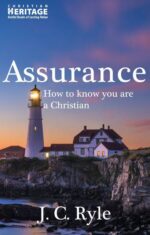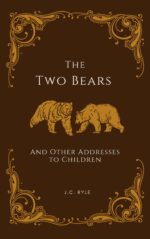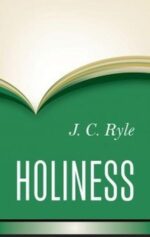Old Paths (J. C. Ryle)
$29.00
Subtitled, “Being Plain Statements on some of the Weightier Matters of Christianity.” Some of Ryle’s most persuasive expositions on the great themes of the gospel.
It was the prophet Jeremiah who first used the expression ‘old paths’ and assured those who followed those paths would find ‘rest for (their) souls’ (Jeremiah 6:16). J.C. Ryle was of the same conviction and wrote:
“The longer I live the more I am convinced that the world needs no new Gospel, as some profess to think. I am thoroughly persuaded that the world needs nothing but bold, full, unflinching teaching of the ‘old paths’”.
In stock
Old Paths
It was the prophet Jeremiah who first used the expression ‘old paths’ and assured those who followed those paths would find ‘rest for (their) souls’ (Jeremiah 6:16). J.C. Ryle was of the same conviction and wrote:
“The longer I live the more I am convinced that the world needs no new Gospel, as some profess to think. I am thoroughly persuaded that the world needs nothing but bold, full, unflinching teaching of the ‘old paths'”.
This book contains some of Ryle’s most persuasive expositions on the great themes of the gospel, with a chapter on each of the following:
Topics Included:
* Inspiration
* Our Souls
* Few Saved
* Our Hope
* Alive or Dead?
* Our Sins
* Forgiveness
* Justification
* The Cross of Christ
* The Holy Ghost
* Having the Spirit
* Conversion
* The Heart
* Christ’s Invitation
* Faith
* Repentance
* Christ’s Power to Save
* Election
* Perseverance
About the Author
In 1841, Ryle was ordained as a minister in the Church of England. In his first position in a rural parish he developed the plain and direct style of communication that would mark his future ministry. He served at several churches for the next forty years, during which time he wrote hundreds of evangelistic tracts. He was a wildly popular writer. His tracts sold more than 12 million copies in his lifetime, and were eventually translated into about a dozen European and Asian languages.
While his ministry flourished, Ryle’s home life was challenging. In 1844, he married his first wife, who died in 1847. He married again in 1849. The couple was happy, but his wife’s health was poor, so the pastor seldom travelled and practically raised his children alone. When his second wife died in 1860, he became a single father with five children between 2 and 14 years old.
Despite these hardships, Ryle became a leader among the evangelical clergy in his day. In 1880, he was appointed the first bishop of the newly formed diocese of Liverpool. Because the diocese was new, it had no system of leadership, no formal administration. During his tenure as Bishop of Liverpool, Ryle raised enough funds to build 90 new houses of worship, ordained over 500 deacons, 500 ministers, and at least 45 salaried lay Scripture readers and 31 Bible women. He founded the Lay Helpers Association, an organization that oversaw Sunday schools, Bible classes, mission services, and cared for sick.











